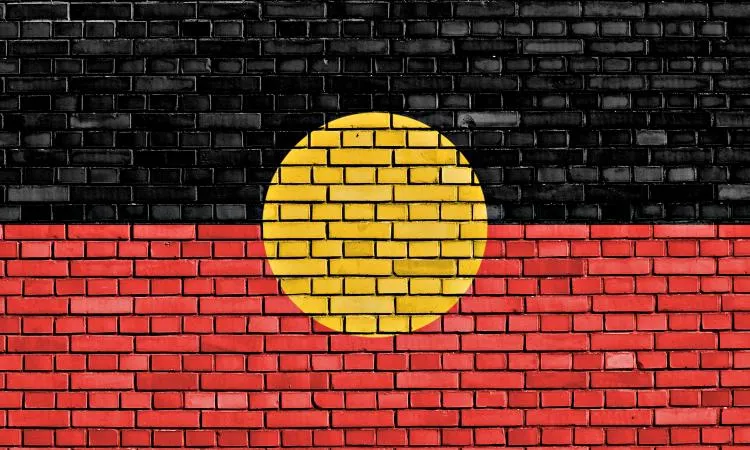
Source
Aunty Carol
Today it was my privilege to meet Aunty Carol of the Yugembah tribe at a conference I attended. Aunty Carol was opening the conference and was acknowledging the traditional owners of the land on which we were meeting. She spent some time talking to us about her life, her past and her struggles, and the significance of her life to date. Aunty Carol was born in the 1940’s and lived upon the land in the Fingal Head area until she and her family were forcibly removed to a camp in Wacol.
There she faced many difficulties, particularly at school. During her schooling, she and her fellow indigenous students were segregated. They were made to sit in the corner of the classroom on the ground and were not allowed to participate in the learning. Other kids continuously teased them with racial slurs and spat on them as they walked past. This all occurred in the 1950’s and led to her hatred of schooling and the system that had treated her so poorly.
She spoke of her ancestors and how her grandfather walked across the land 50km or so, to find himself a bride. How they then made their way to the coast where her father was born and lived off the land and sea.
She then told us how her mother was a part of the stolen generation, taken from her family by a police sergeant in the period before WWII from the Fraser Island region and sent to the Gold Coast where she eventually met her father.
This then got me thinking about the Stolen Generation and the impact that the government policy at the time has had upon a whole population and culture of people. What purpose would such a policy serve and why was this not stopped by the people of Australia?
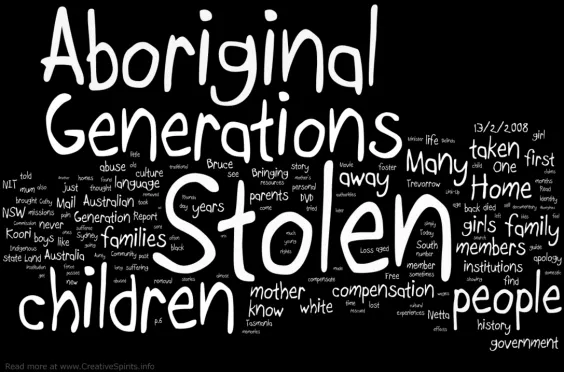
What is the stolen Generation?
The stolen Generation refers to the children of Australia's indigenous peoples who were forcibly removed from their parents from 1905 through until the late 1960’s. Australian Federal and State government agencies, along with church missions, legalised the removal of these children through respective acts of parliament as part of the policy of Assimilation.
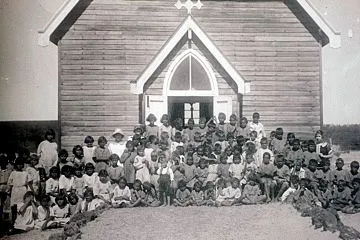
Source
Official government estimates suggest that somewhere between 30 – 60% of indigenous Australian children were forcibly removed from their families and communities across all regions of the country during this time. Children were forced to adopt European clothing, food and religion and most were never to see their parents again. Their names were often changed and they were forbidden to speak their traditional languages. Some were adopted by white families and some were placed in institutions where abuse and neglect were common.
The impact of this era had a devastating impact upon the people that were removed from their families. Although the stated reasons behind the removals was:
To improve the integration of Aboriginal people into modern society as the race was a dying breed
The impact of these policies is still felt today. The impacts of these policies upon the affected people included:
- Psychological, physical and sexual abuse
- Being forced to feel ashamed of their culture
- Wrongly being told their parents had died
- Poorer levels of education was provided
- Higher incidences of depression, anxiety and suicide
Since these draconian policies were removed in the late 1960’s, numerous studies have shown that children ‘stolen’ from their families were twice as likely to use illicit drugs and alcohol, three times as likely to have a police record and less likely to have completed secondary education than those children who were not removed.
Reconciliation
Several attempts to address the wrong doing of the past have occurred over the past few decades. None is more significant than the official apology issued by the government on February 13, 2008 by the then Prime Minister, Kevin Rudd, to Indigenous Australians and their treatment at the hands of past government policies.
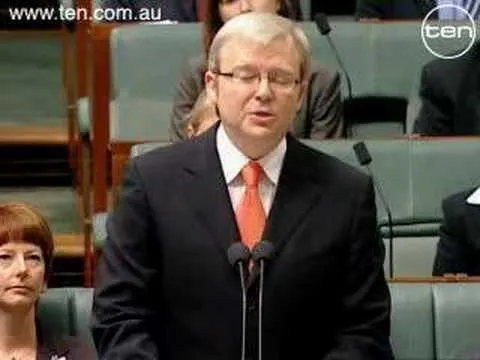
National Sorry Day is now recognised in Australia each year on May 26th.
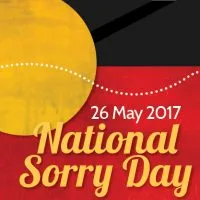
It has gone someway to healing the ills of the past, however, the scars that have been left upon this generation of people, and indigenous people in general, will forever remain.
Are we learning from our mistakes?
This then got me thinking about whether we, as a country, are learning from our past mistakes? Recent statements by particular politicians has got me thinking about the ramifications and effect of this policy, and others, upon the psyche of the Australian population. Have our policies just shifted to focus on different at-risk people in our community. Are the xenophobic views of some still impacting upon the selection of our lawmakers and impacting policy decisions? We only have to look towards the US to see the power of the media and how popular some of these views can be.
I recently posted about our current immigration policies ----> HERE and whether we are giving everyone a fair-go and thinking about the good of the human race when making decisions around immigration policy.
Indigenous peoples across the country still suffer from the policies of the past. Life expectancy and the standard of living in Indigenous communities across the country are much lower than other peoples in Australia. These policies of child removal have left a legacy of trauma and loss in many communities across the country.
The treatment of Australia's indigenous people since European settlement is something that I know I had no direct control over, but I am still deeply ashamed it occurred in this country I love so much.
After meeting Aunty Carol today, and hearing of her triumphs after enduring so much grief and poor treatment in her life, gave me hope that we, as a nation, have perhaps turned the corner. She ended her talk by proudly informing us of her 19 grandchildren and 6 great-grandchildren and how their prospects as indigenous people were much brighter than hers were at the same age.
My hope is that we all learn from the past. That we are able to teach our children that all people are different and should never be judged by their race, skin colour or beliefs. Tolerance of each other is a virtue that I value in our society, and I hope that we, as the ‘lucky’ country, are able to learn from the treatment of our indigenous peoples in the past and can build a better and more tolerant country for the future of our children.
Thanks for reading.
